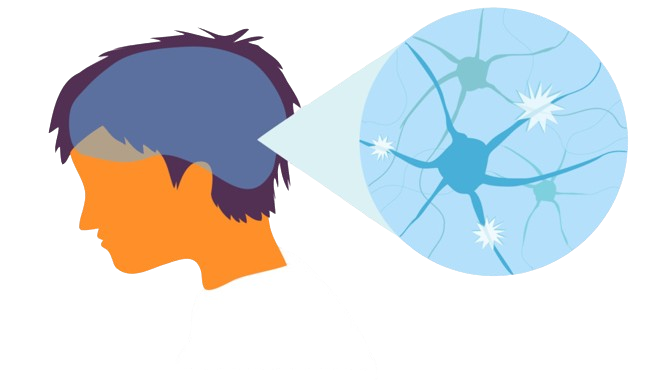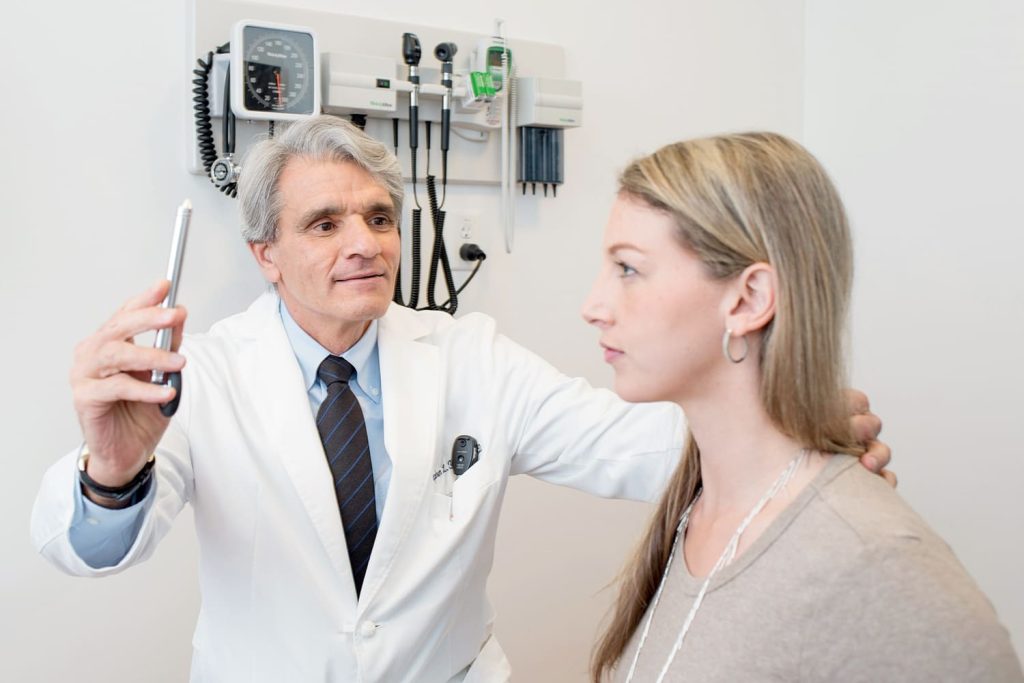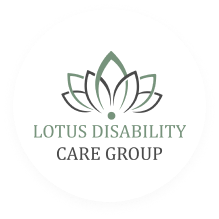Multiple Sclerosis (MS) is an autoimmune Disease where the immune system attacks the protective layer of the nerves in the body. This fatty sheath known as the Myelin is responsible for protecting and insulating the nerves so that electrical messages that the brain relays to all parts of the body can travel quickly and efficiently. When the myelin becomes damaged, the nerves become exposed and scarred and the brain cannot communicate properly to the rest of the body. Eventually permanent damage can occur resulting in loss of motor function such as walking, loss of sensation, pain, visual problems and cognitive changes.

Signs and Symptoms
All activities our body’s perform rely on our nerves relaying messages to different parts of the body. Due to this, signs and symptoms can be vast and affect different people in different ways. Some of the most common symptoms include:
- Difficulty with communication and social interactions
- Restricted and repetitive behaviours and interests
The common signs of ASD in children include:
- Tremor- this is one of the earliest signs that is often noticed. It involves involuntary trembling or shaking most often in the upper limbs. This may be at rest or when using the limb.
- Anxiety and Depression- is commonly seen especially after diagnosis, when going through a relapse, with disease progression or with treatment changes. Depression can also be caused directly if lesions are located in areas of the brain associated with mood. Coping with daily living challenges, stress, pain and fatigue can also impact on mood.
- Ataxia- is a lack of coordination of muscle movements. It can appear as clumsiness, unsteady gait, impaired eye and limb movements, speech problems, dizziness or lack of coordination
- Bladder and bowel problems- Lesions in some areas of the brain can affect signalling to the bladder it is time to urinate, which can lead to incontinence. Other lesions can occur in the spinal cord, and more directly affect the nerves controlling the bladder and bowel.
- Problems with balance and walking: This can result from damage to areas of the nervous system responsible for mobility. Muscle weakness in the legs can occur if there are lesions in the spinal cord.
- Changes in cognition-. A common occurrence is what is referred to as “brain fog”. This impacts on decision making, focus, concentration and memory slowing down thought processes such as expressing ideas and word finding.
- Obsessions with routines, behaviour patterns
- Fatigue: may be temporary such as during a relapse chronic and ongoing. It is usually unrelated to lack of rest or sleep or over exertion. Fatigue is one of the more debilitating symptoms of MS making it difficult to perform activities or plan ahead.
- Stimming- using objects in unusual ways to produce stimulation ie rolling wheels, flapping hands
- Sensory changes: These result from damage of the nerves so the brain is no longer able to interpret incoming signals. The signals relayed can be interpreted as numbness, pins and needles, tingling, crawling, prickling, itching or burning
- Swallowing issues: These changes may be intermittent, occur only during a relapse or ongoing. They can lead to difficulties chewing food, swallowing, coughing or choking episodes dribbling and regurgitation of food or liquids. Not only do they affect safety, but also enjoyment of meal and self-esteem.
- Dysarthria: refers to speech issues that result from muscle weakness. This could result in voice changes such as monotone or nasally sounding voice. Speech may be imprecise, slow orhave variable loudness.
-
Pain: can often be related to two main types:
• Neuropathic or nerve pain. Examples include optic neuritis (sharp eye pain), Lhermitte’s sign (sharp electric shock sensation that travels from the neck down through the spine to the legs) or numbness or burning in the limbs
• Nociceptive pain: caused from damage to muscles, tendons and ligaments. For example back or hip pain related to altered walking patterns or spasms. - Optic neuritis, Double vision and eye movement problems: occur when the nerve pathways between the brain and eyes are damaged. This can result in uncoordinated eye movements.
Multiple Sclerosis is categorized by 3 types according to the way it affects the body over time.
- Relapsing Remitting MS (RRMS) - is the most common form of MS. It is characterised by temporary periods (relapses) when new symptoms or “flare ups” appear. This is followed by periods of recovery and remission.
- Secondary Progressive MS (SPMS) - SPMS is a secondary phase of RRMS. It can develop years, to decades after the initial onset of relapsing symptoms. It is characterised by progressively worsening symptoms over time, with no signs of remission
- Primary Progressive MS (PPMS) - Occurs in approximately 10-15% of people with MS. It is characterised by a progressive worsening of symptoms right from the onset and without periods of recovery or remission


Diagnosis of Multiple Sclerosis
Diagnosis is reliant on a combination of clinical tests, MRI scans and lumbar punctures.
Symptoms of MS can be similar to other neurological conditions. One medical assessment Clinicians use is the McDonald criteria. This requires there to be a history of two or more clinical relapses with evidence of two or more MRI lesions in different areas of the brain or spinal cord. Signs of previous attacks (lesions or older scars) that may have been missed can also help make the full diagnosis.
Where can I get help?
If you have any concerns, it is essential you discuss these with your trusted GP. Basic assessments can be performed and referral to a specialist such as a Neurologist can be made.
MS Australia and its state subsidiaries are dedicated to advocacy, education, and research. They are a wealth of information and can assist with finding local programs and services
MS Australia and its state subsidiaries are dedicated to advocacy, education, and research. They are a wealth of information and can assist with finding local programs and services

Lotus Disability Care Group supports a number of families living with ASD We provide support and education for families including:
- Support Accessing NDIS
- Support Coordination: to provide and manage your support services, NDIS funding and necessary reporting
- Support Workers: to assist with personal cares, cooking, home duties, shopping, attending appointments and other social events
- Access to Allied heath practitioners including OT, Speech therapists, physiotherapists, Dieticians, Social Workers, Psychologists and counsellors
- Domestic assistance with cleaning and yard care
- Small group social events to provide stimulation, maintain skills and socialisation
To find out more please contact info@mylotus.com.au.



